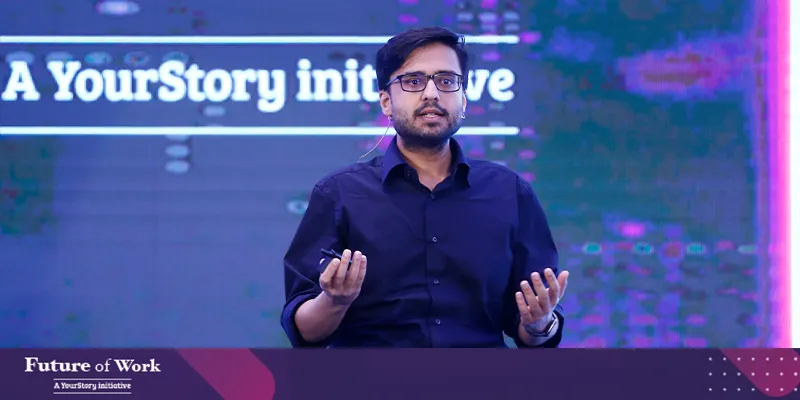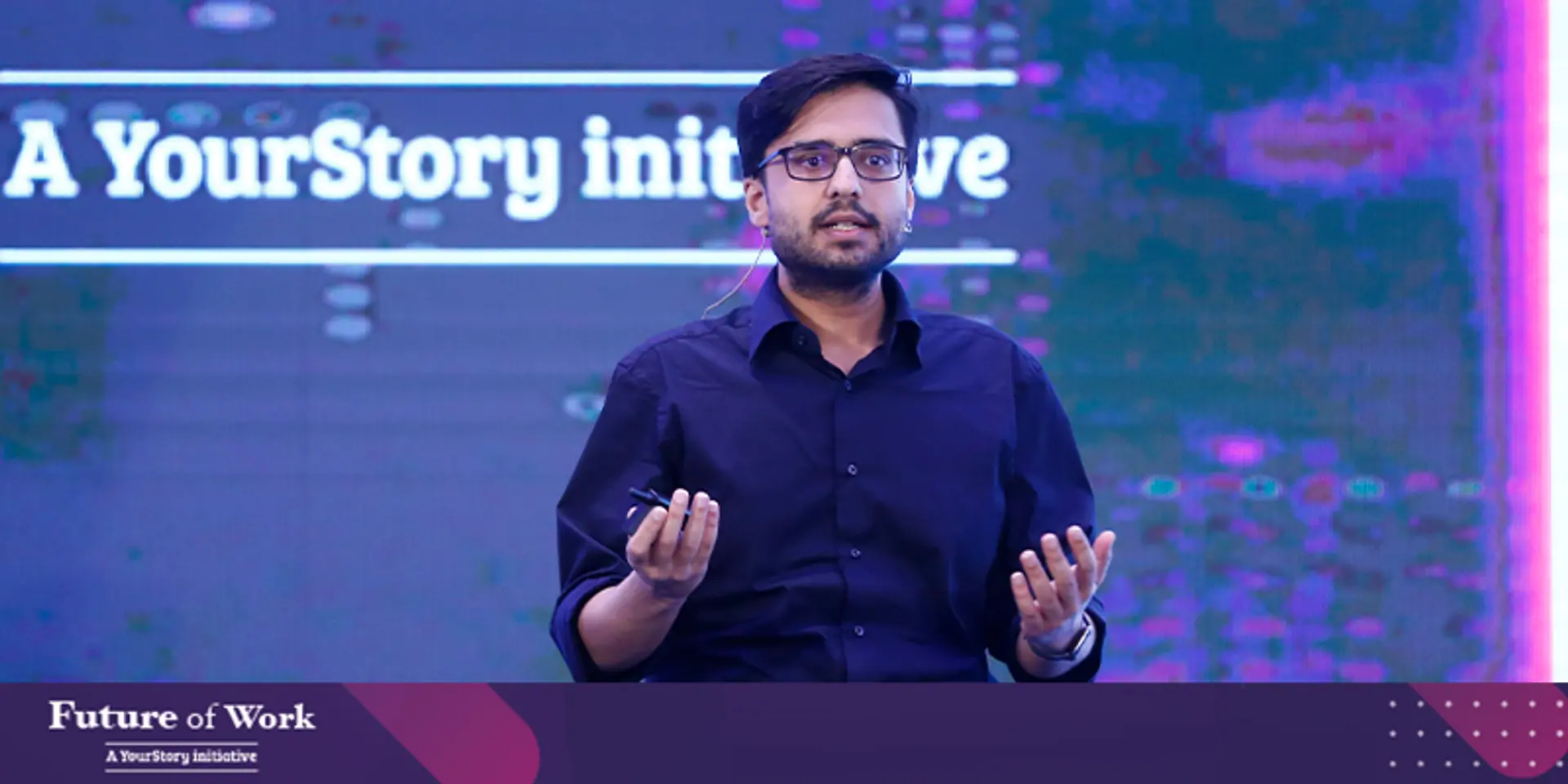Future of Work 2020: Zilingo’s Dhruv Kapoor on how the ecommerce unicorn built tech for scaling
At YourStory’s Future of Work conference held recently, Dhruv Kapoor, Co-founder and CTO of Southeast Asian ecommerce unicorn Zilingo, spoke about what it takes to scale tech companies in Southeast Asia and across multiple geographies.
When ecommerce marketplace Zilingo was founded in 2015, it was one of the first few Indian startups in the growing Southeast Asian ecosystem. Today, the venture started by Ankiti Bose and Dhruv Kapoor is a unicorn, and is one of the largest ecommerce platforms out of Southeast Asia. Zilingo also touched its $100 million transaction flow last month.
Addressing a packed hall at the third edition of YourStory’s Future of Work, India’s largest product-tech-design conference, Zilingo CTO Dhruv spoke about the online fashion marketplace’s tech journey and how it scaled operations with time.
While the startup had started operations with a focus on Southeast Asian markets, today, the company has operations in both Southeast Asia and India, with its tech centre based out of Bengaluru.

Becoming an end-to-end player
Zilingo was founded in 2015 with the vision to help merchants grow their business. Today, Dhruv said, the company is a complete ecosystem builder and enabler.
“Initially, we helped merchants sell to consumers on the platform and were cross-country from day one. By 2017, we had teams across five countries. In these four-five years, we have evolved into an end-to-end supply chain enabler that lets brands, sellers, wholesalers, distributors, and factories come together to access financing, logistics, and everything that is a part of the ecommerce ecosystem,” said Dhruv.
He explained to the audience that Zilingo never had a playbook on how to go about launching products, new geographies, and building teams. But taking favourable market conditions into consideration, Zilingo has grown.
Dhruv points out that Indonesia, the Philippines, Thailand, and Vietnam put together have over 500 million consumers. “It has a consumer base that has access to smartphone and 4G, and were the early adopters,” said Dhruv, adding that the street hawkers in Bangkok’s local markets had better access to smartphones and 4G than the founders did.
The evolution and growth of Indonesia’s fintech market and ecosystem was another reason Zilingo hit up the country.
One step at a time
While these countries had an ideal market framework, what they sorely lacked was access to a larger supply chain, and, instead, were only selling through Instagram and Facebook. This cemented Zilingo’s reasoning to start expansions there. “Our focus was very merchant-centric, and as we started to scale, we realised that we could do a lot more for the merchants,” Dhruv noted.
Financing was a prime example. Merchants in Southeast Asia were challenged with limited access to financing as banks do not bet on the SME segment, and most merchants turn to friends and family even for working capital.
From its early days, Zilingo wanted to build a robust technology stack. The team had to decide whether they should use an existing off-the-shelf solution or build proprietary technology. They were under-resourced back then, with an engineering team of just 4-5 people, but knew they had to own the entire tech stack if they wanted to create a good offering.
“As part of scaling our B2C platform, merchants also had problems with the supply chain when it comes to access to raw materials. Sourcing was limited. So, the question we had was do we limit ourselves to what we were doing with just access to a consumer base or do we step up and innovate on behalf of the merchants and help them with supply and financing access. We took a big leap and launched Zilingo trade, and soon evolved into a full-stack supply chain enabler, to help connect distributors, wholesalers, and factories with retailers and merchants. This gave them a digitised supply chain with secure online payments,” Dhruv explained.
An end-to-end offering
Building a core tech stack that is proprietary had also helped the team easily expand its operations and build platforms like Zilingo trade, which encompass multiple facets like retailers buying in bulk, wholesalers uploading their merchandise, and the retailers looking at accessing the consumer on the B2C front.
“Our journey has been more interesting and challenging than building a regular marketplace, as it is like building different sectors within one place. Financing, for example. We believe that fintech and financing will grow when it is integrated with the transactional flow. If you look at a merchant, they first have to focus on a platform where they are selling goods, then go to a financial institute and undergo a cumbersome financing process for KYC to access finance. If fintech is integrated with transactional and marketplace platforms like Zilingo, the process becomes simpler. The same things apply for payments and logistics,” said Dhruv.
Once this process was built last year, Zilingo looked deeper to see if it could integrate with factories, and, as a result, acquired Sri Lanka-based nCinga in 2019. The SaaS startup helps factory managers track production, monitor quality, and optimise their operations. With its acquisition, Zilingo connects factories too on its platform.
Through it all, the tech team at Zilingo had to be mindful of building a product that focuses on localisation and languages for different geographies. But that is not all. The marketplace had to keep tabs on culture, market and consumer preferences, and regulations too while scaling its tech.
This also meant that logistics, financial transaction processing, and warehousing needs differed from place to place. Therefore, technological nuances needed to be in place to allow data to be stored locally, or working with different modes of preferred payments.
“Optimisation for different geographies therefore works beyond just languages,” added Dhruv.
Building strong teams
What spurred scaling across geographies for Zilingo was its strong country-level leadership, which not only understands the market but also has the vision and roadmap for growth.
But working across locations comes with its own set of challenges. Dhruv said, “Distributed teams exhibit scaling challenges much earlier than with colocated teams. We have learnt to plan ahead while scaling teams and geographies. Teams need a high degree of context and shared goals to work together across time zones and locations.”
He noted that as the team expands beyond the first 15 to 30 people, organisations need to a structure a framework around communication, growth, and product iteration.
“A framework is better than a process, as processes tend to be rigid, lead to complacency, and quickly become outdated. Frameworks, on the other hand, are strong guiding lines but can be flexible when needed, and are adaptable over time,” Dhruv added.
(Edited by Evelyn Ratnakumar)
A big shout out to our Future of Work 2020 Sponsors: Alibaba Cloud, Larksuite, Vodafone Idea Limited, Gojek, Adobe, Udaan, Pocket Aces, Junglee Games, ShareChat, Open, Vesta Space Technology, Maharashtra State Innovation Society, Kristal.AI and GetToWork; and our Knowledge Partner: Ascend Harvard Business Review.







